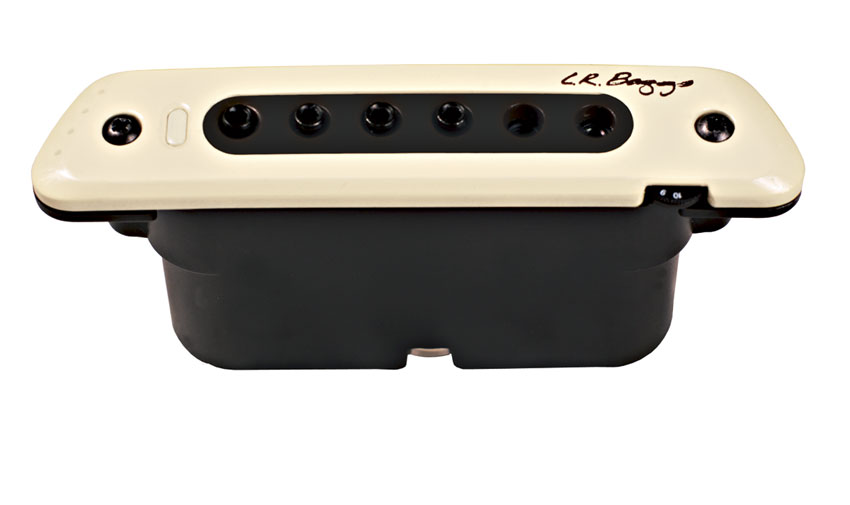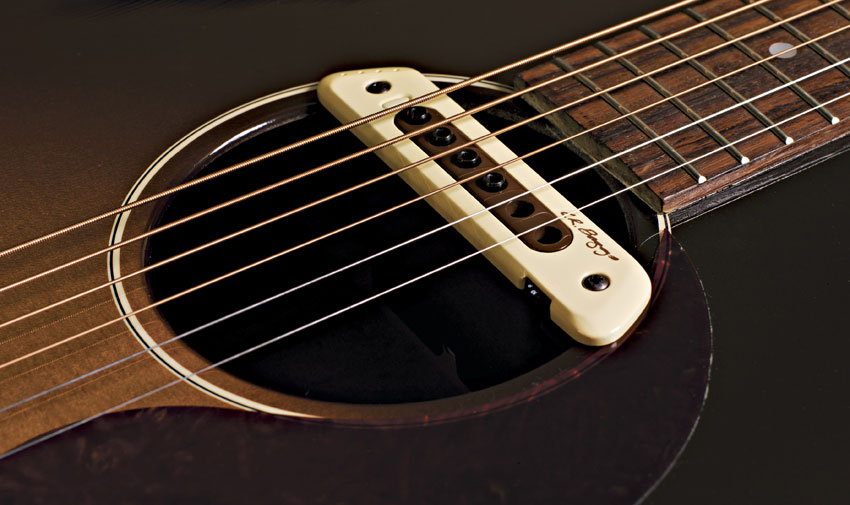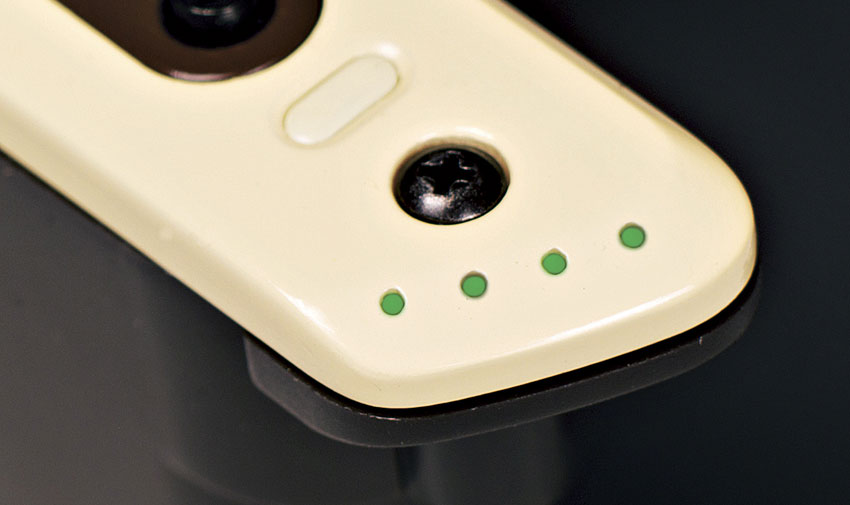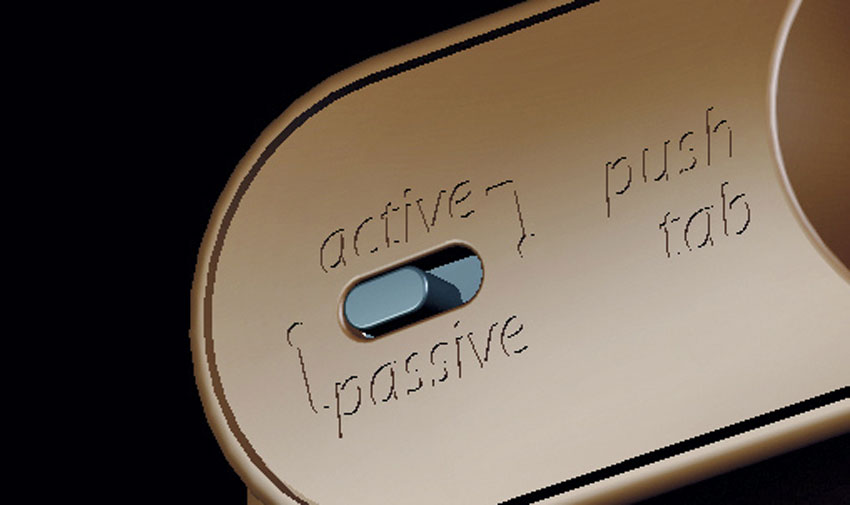MusicRadar Verdict
Beautifully designed bridge-plate microphone that might just change your perception of how good an onboard acoustic pickup can sound.
Pros
- +
Design. Highly detailed sound. Easy fitting that won't harm your guitar. Feedback rejection.
Cons
- -
Nothing.
MusicRadar's got your back

LR Baggs M80 review

Soundhole

LED

Switch
Lloyd Baggs' California-based company has given us a constant stream of pickups that attempt to address the limits of the ubiquitous undersaddle piezo strip, which is still standard on the majority of electro-acoustic guitars. For players who need higher volume levels, the M1 and M1 Active are well-used soundhole pickups, but the new M80 promotes '3D body sensitivity' in an attempt to produce a magnetic pickup that has very mic-like characteristics.
"The M80 is easy to fit: it just slots into your soundhole; its coin battery is pre-fitted at the base of the pickup"
The M80 is easy to fit: it just slots into your soundhole; its coin battery is pre-fitted at the base of the pickup. In terms of functionality, the M80 carries on from the M1, which captures the upper-frequency resonances of the guitar's body as well as, of course, the strings. This pickup aims to capture the entire frequency range of the top, back, sides and neck resonances in all three dimensions.
Like the M1, it has adjustable polepieces, a neat multi-segment battery indicator, onboard mini volume control, and an active/passive switch if your battery fails (the volume control only works in active mode).
Sounds
We mounted the pickup onto a well-gigged Tacoma dreadnought and put the signal through our Trace Acoustic and AER test amps. We also recorded the system to check the sound, without playing the guitar, through studio monitors.
"If you think magnetic soundhole pickups all sound electric guitar-like, here's one that certainly doesn't"
We weren't expecting the same level of accuracy from the M80 as a microphone system, but if you think magnetic soundhole pickups all sound electric guitar-like, here's one that certainly doesn't. It's actually remarkably similar in character to LR Bagg's mic-based Lyric system in terms of its wide sensing, especially in the high end.
Higher position licks and parts do sound more magnetic, a little thicker, and there's more body to the sound, which certainly helps to produce a big rock-like acoustic voice. Conversely, removing a little lower-midrange and just adding a little high-end sheen produces such a mic'd-like sound that at one point in our test we thought we were listening to a recording from the aforementioned Lyric, when in fact it was the M80.
The other factor in this 'illusion' is that, with the M80's wide sensing, any percussion you might add from your pick hand is replicated. Of course, this liveliness might not be what you want at higher volume levels, but the M80 is highly feedback-resistant. With our Trace Acoustic at full level, it was frankly hard to get the system to squeal.
Want all the hottest music and gear news, reviews, deals, features and more, direct to your inbox? Sign up here.
The sound 'quality' of an acoustic is highly subjective. Add in its amplified sound and you're into a complex world of different pickup types, various stages of EQ, not to mention the wonderful world of feedback rejection, PAs and sound engineers.
Yes, it's a soundhole pickup, but its wide sensitivity produces a sound with bags of modern clarity and zing. The M80 certainly has more of a magnetic character than a mic system, but with a little outboard EQ you really can narrow the gap. Still, the round, full sound it produces might be right up your street in terms of how you want to hear your acoustic when amplified or recorded.
So while we can't make any promises about your actual playing, we can recommend the M80, and wager that it'll improve your amplified sound.
Dave Burrluck is one of the world’s most experienced guitar journalists, who started writing back in the '80s for International Musician and Recording World, co-founded The Guitar Magazine and has been the Gear Reviews Editor of Guitarist magazine for the past two decades. Along the way, Dave has been the sole author of The PRS Guitar Book and The Player's Guide to Guitar Maintenance as well as contributing to numerous other books on the electric guitar. Dave is an active gigging and recording musician and still finds time to make, repair and mod guitars, not least for Guitarist’s The Mod Squad.
